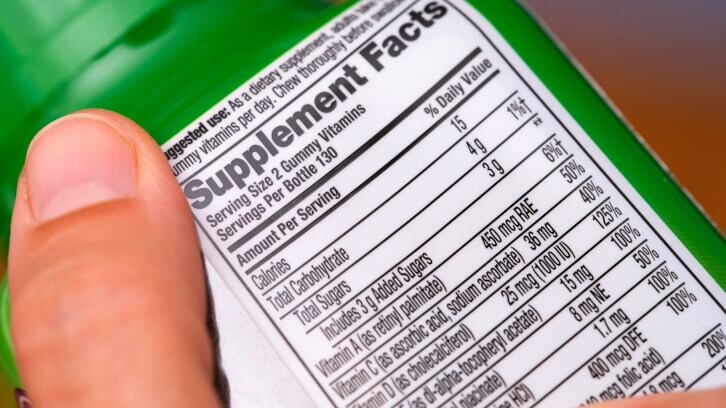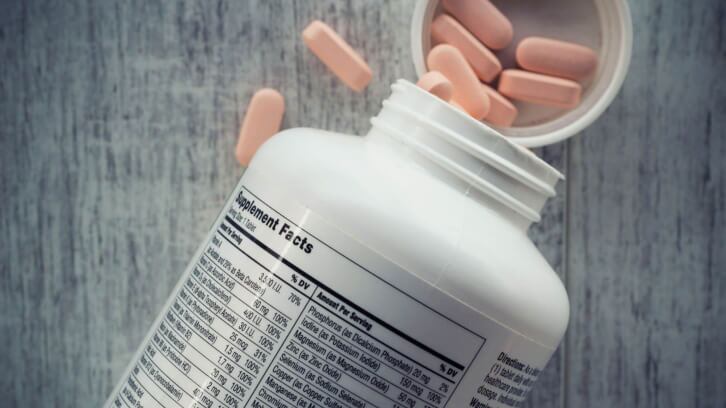“NPA opposed this bill when you introduced it in 2022 as did the House and Senate committees of jurisdiction when they rejected it during consideration of the FDA user fee reauthorization bills,” wrote Daniel Fabricant, PhD, president and CEO at NPA. “The narrative that the industry isn’t adequately regulated is false and should no longer be advanced as the basis for adding unnecessary regulations.”
He offered to walk the senator’s office through the numerous aspects of the law and explain how tools like mandatory recall or administrative detention established by Congress through the Food Safety Modernization Act (FSMA), “have never been used by FDA to police misbranded drug products masquerading as dietary supplements”.
Plans to reintroduce
Earlier this month, Sen. Durbin addressed his own letters to dietary supplement trade associations including the American Herbal Products Association (AHPA), the Consumer Healthcare Products Association (CHPA), the Council for Responsible Nutrition (CRN) and the United Natural Products Alliance (UNPA). At the time, Dr. Fabricant told NutraIngredients-USA that the NPA’s letter must have gotten lost in the mail.
“When the Dietary Supplement Health and Education Act (P.L. 103-417) became law in 1994, there were 4,000 products marketed as dietary supplements in the United States,” Sen. Durbin wrote. “Now, FDA estimates that there are more than 95,000 of these products on the market. But, the agency does not know the true number—let alone what ingredients are included in those products.”
In the face of this unknown, the senator added that the Dietary Supplement Listing Act would have given FDA much-needed insight into the market and improved its abilities to initiate enforcement action against the companies that market dangerous or illegal ingredients, such as tianeptine, in their supplement products.
FDA continues to prioritize mandatory product listing (MPL), first proposed in 2020, which would require dietary supplement manufacturers to notify the agency before bringing a product to market and to upload label information to a central database.
While industry reaction has been mixed, NPA remains the most fervently opposed to the proposed legislation.
Tianeptine: Not a dietary supplement
Addressing the tianeptine issue, Dr. Fabricant noted that not only has the antidepressant drug (aka gas station heroin) never been a dietary supplement but that there is no basis for FDA to claim that it cannot identify products that include tianeptine.
“While not a dietary supplement, in referencing an existing dietary supplement label database (DSLD) created and maintained by NIH (with over 183,000 labels), there are four references to products containing tianeptine,” he wrote.
More concerning, he added, is that an online search of these product names reveals that three of them still appear available for sale, among others.
“Does the FDA not have access to search engines?” Dr. Fabricant questioned. “One would hope that the agency would spend a few dollars conducting such a routine or cursory check of the marketplace and taking action on what it found before asking Congress for tens of millions of new funds and a new legislative mandate to create yet another database that the misbranded drug producers will be sure to ignore.”
‘More than adequate authority’
NPA also continues to push for the acknowledgement that FDA is not using the enforcement tools and resources at its disposal to police the industry and uphold its mission.
“As the former FDA director of supplement programs under the Obama administration, I can tell you first-hand the agency has more than adequate authority to address any and all challenges it may face in regulating the dietary supplement marketplace,” Dr. Fabricant wrote.
He referenced his issuance of a mandatory recall notice during his tenure on a supplement that led to cases of non-hepatitis liver injury and also called out the Department of Justice’s failure to act in removing misbranded drug products from the market in 2015.
“The matter is not and has never been a resources issue for the FDA,” Dr. Fabricant wrote. “The agency’s failures stem from a lack of willpower and a misplacing of priorities.”
NPA said that it could elaborate on how industry is self-regulating if there is room for dialogue on a system that is not public facing, does not include new prohibited acts that would give FDA administrative pre-market approval, and provided that conflicting state laws in this space are pre-empted.
“Without these considerations, reintroducing the previous legislation would continue to meet with opposition from our membership,” the letter read.




